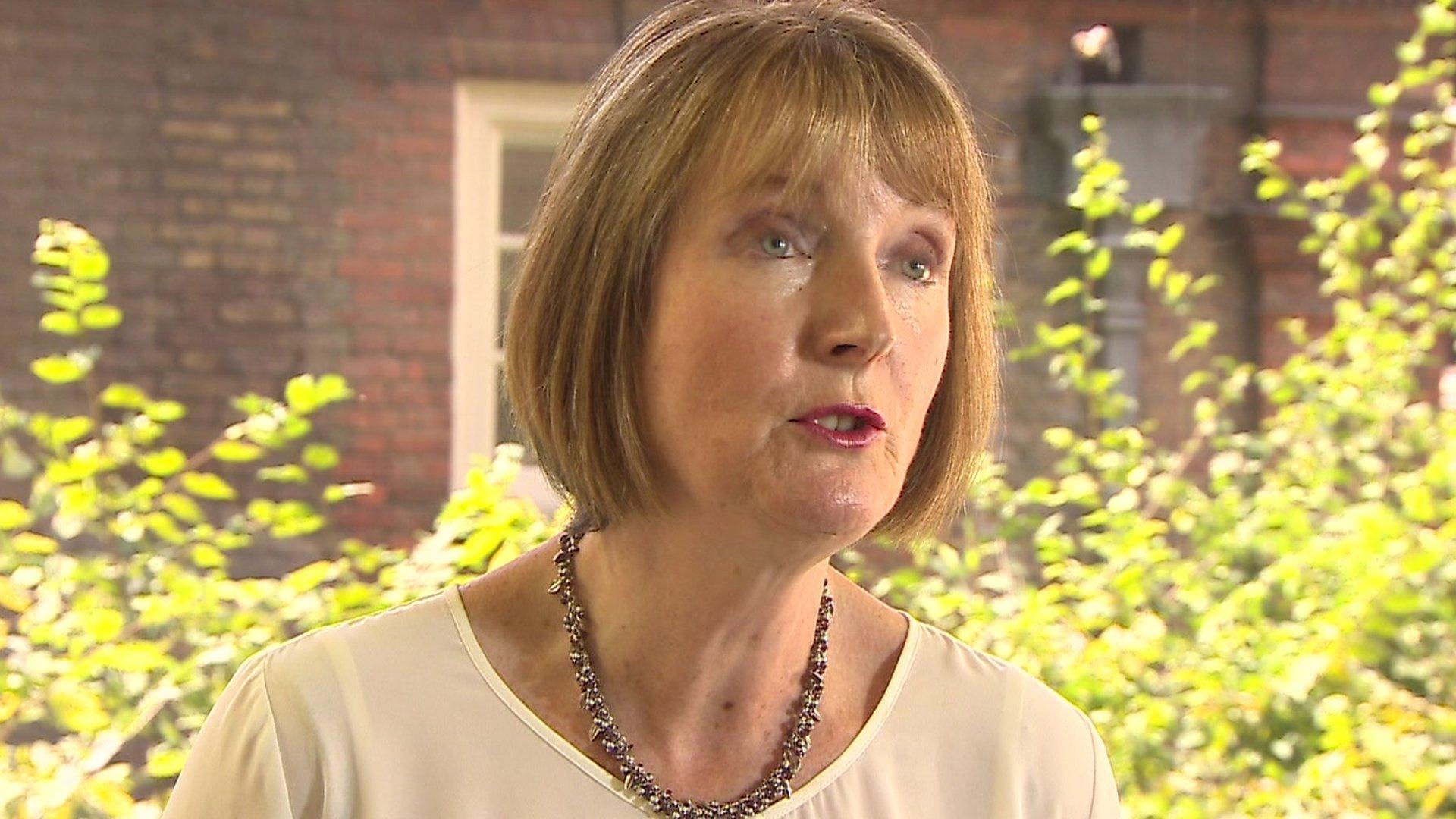Labour leadership: Harman vows to weed out all 'cheats'
- Published
Harriet Harman: "Those people who don't support the aims and values of the Labour party are not entitled to vote"
Harriet Harman has said 3,000 alleged "cheats" have so far been excluded from voting in the Labour leadership contest, with more expected.
The acting Labour leader said: "It is not funny or clever for people from other parties to try to cheat their way into our system."
And only people who supported the "aims and values" of the Labour Party would be allowed to take part.
She was speaking after a meeting with the four leadership contenders.
She said the verification process was "robust" and would go on until the "very last minute".
Labour has barred 1,900 Green Party supporters or members from the vote so far, compared with just 400 Conservatives, it said.
The new Labour leader is set to be announced on 12 September.
Ms Harman appeared to reject a call by frontrunner Jeremy Corbyn to allow those banned from voting the right of appeal.
'Trotskyites and Greens'
Mr Corbyn has said the party should welcome the influx of new supporters from other parties, such as the Greens, "because that's how parties grow", and he said some had been unfairly barred.
He has also rejected as "nonsense" claims of widespread Conservative infiltration, amid reports Tory activists had signed up to vote for him because they believe he would be a disaster for Labour.
Ms Harman rejected suggestions the party was attempting to weed out far-left supporters of Mr Corbyn, thousands of whom are thought to have signed up to vote for him.
She said the process was strictly impartial but voters had to support the party's aims and values, which are set out in Clause IV of its rule book, external.
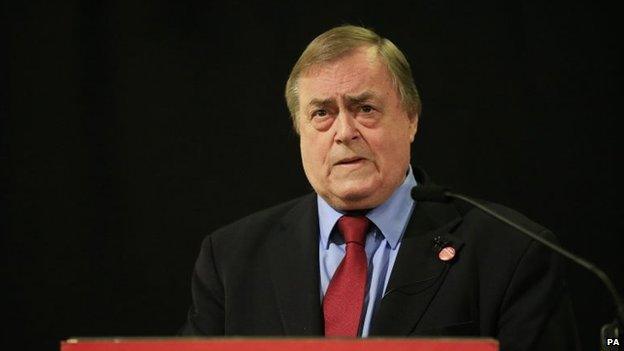
John Prescott says he fears the Labour party may end up splitting
"If people don't support the Labour Party's aims and values, whether they don't support them because they are Tories or because they are Trotskyites or whether they are Greens... they don't get a vote," she said.
Under new party rules introduced last year, members of the public could sign up to vote in the Labour leadership contest for £3. More than 160,000 people signed up to vote in the final days before the registration deadline.
The party initially said this brought the total size of the leadership electorate to 610,000.
But that has now been revised down to 553,954 - a fall of almost 60,000 people. Labour says the vast majority of this fall is explained by duplicate applications and those requesting a vote not being on the electoral register and is not the result of a "purge" of those not entitled to a vote.
Two panels made up of members of Labour's national executive have been given the job of vetting new sign-ups.

How is Labour catching 'cheats'?

By James Clayton, BBC Newsnight
You're extremely unlikely to be struck off for having fruity opinions on Facebook.
Labour is terrified of legal challenge and the general nature of Labour's own definition - set out in clause IV of its rule book - makes it hard to remove your vote on these grounds.
A list of reasons given to me by Labour HQ for excluding registered voters include: not being on the electoral register, already being a member, having stood for another party and being a known member/campaigner of other party.
Nothing in there about having contrary opinions.

Leadership contender Andy Burnham said he believed there was a problem with infiltrators, but confirmed that he would not attempt to challenge the result in court even if he was narrowly defeated.
"I wouldn't want to overstate this whole issue, but there is some evidence that Tories are signed up to vote," he told the audience in Stevenage.
Female leader
Yvette Cooper said candidates should not be involved in how the contest was being run and it was up to the Labour Party to make sure it was a robust process.
The fourth candidate, Liz Kendall, agreed, saying it was important to exclude anybody who had actively campaigned against the Labour Party.
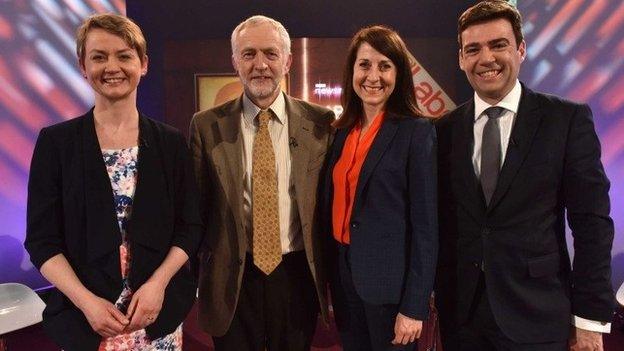
Yvette Cooper, Jeremy Corbyn, Liz Kendall and Andy Burnham are battling to be Labour's leader
Mr Burnham triggered murmurs of protest during the BBC Radio 5 Live debate for suggesting Labour should have a woman leader only "when the time was right".
He quickly clarified that he had meant when the "right candidate" came along.
The shadow health secretary also indicated that he would not serve on the Labour frontbench if the party's policy was to scrap Trident or leave Nato - positions backed by Mr Corbyn.
"Those would not be policies that I could support. I would not support a policy to leave Nato," he said.
Meanwhile, former deputy prime minister John Prescott has warned the contest could end up splitting the party.
Lord Prescott, speaking at a rally for Andy Burnham, compared former leadership contender Chuka Umunna and Tristram Hunt to the so-called "Gang of Four" MPs who left the party to form the SDP in 1981.
Mr Umunna and Mr Hunt have established the "Labour for the Common Good" group to look at how it can win back power.

Labour leadership contest
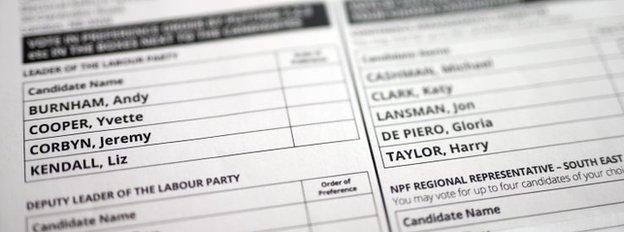
Who are the candidates? Andy Burnham, Yvette Cooper, Jeremy Corbyn, Liz Kendall
Dates: Ballot papers were sent out on 14 August; voting can take place by post or online. They must be returned by 10 September. The result is announced on 12 September
Who can vote? All party members, registered supporters, who signed up for £3, and affiliated supporters, who joined via a union.
What is the voting system? The Alternative Vote system is being used, with voters asked to rank candidates in order of preference
How does it work? If no candidate wins outright with more than 50% of first preferences, whoever is in fourth place drops out and the second preferences of their backers are reallocated to the other candidates. If there is still no winner the third placed candidate is then eliminated with their second preferences similarly reallocated. The candidate who has accumulated the most votes through the different rounds then wins.
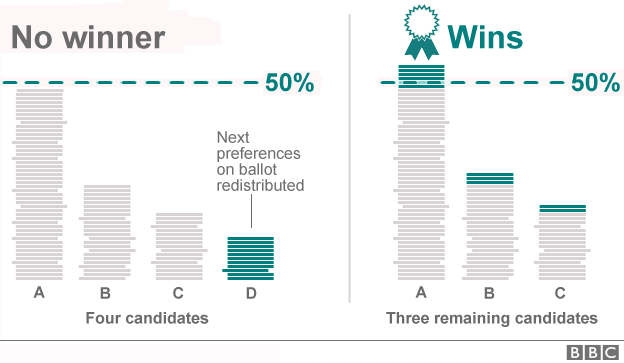
- Published24 August 2015
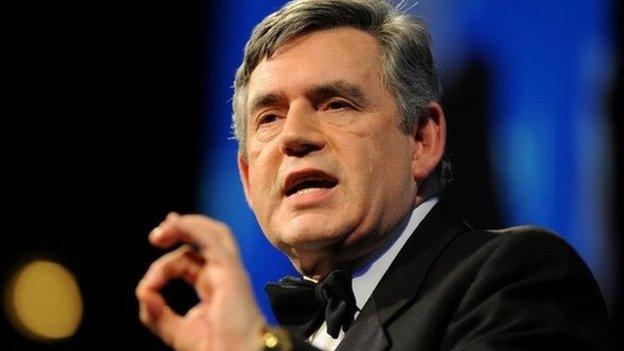
- Published24 August 2015
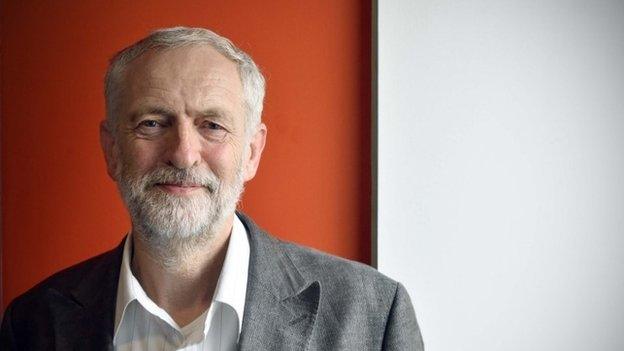
- Published22 August 2015
